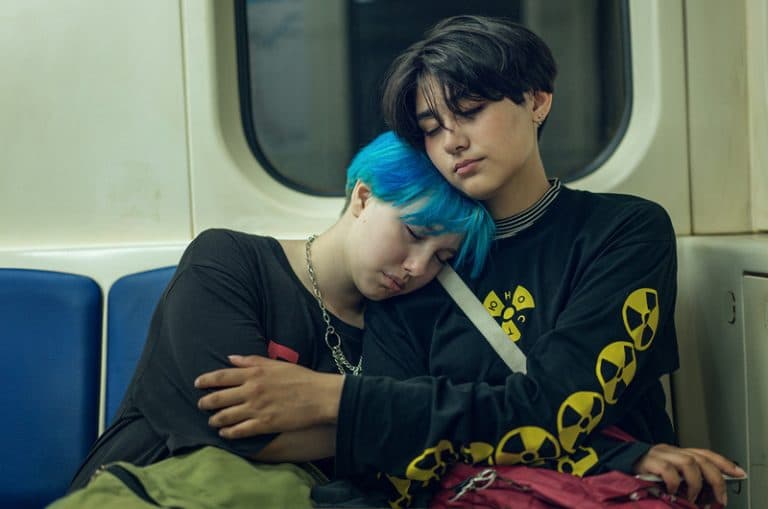You can now pay social media influencers to be your friends
In the latest turn of events surrounding influencer marketing, people with a large following on social media are now offering a service to their followers where they will become their ‘online’ friends for a subscription fee. Before we go into the ethics of this, my question is, why are people so eager to be friends with someone they only know by their social media presence and what do they really get in return?
Influencer culture attracts much scepticism, and the main reason for this is due to some of the questionable tactics influencers and influencer agencies use to make money. For example, expecting freebies in exchange for ‘exposure’, staging a motorcycle crash to promote a water brand, or perhaps the most notorious incident, in which Caroline Calloway, recently under fire for an essay published by her ghostwriter and former friend, was charging people $165 for a tour of ‘creative workshops’ across the U.S., that later turned out to be a failure, as she sold tickets prior to confirming a venue, as well as promised orchid flower crowns to the attendees and instead had them passing around a single orchid for selfies (it was even compared to Fyre Festival). Calloway ended up having to cancel all appearances, except for one in New York. This year’s Love Island runner ups, Tommy Fury and Molly-Mae Hague have also been reported to be charging fans for taking selfies with them—with Hague requesting £4 and Fury requesting £30.
With the rise of influencers selling their services, many have begun using Patreon, a crowdfunding membership platform that provides business tools for artists and creators to build relationships and provide exclusive services to their patrons. Patreon is essentially enabling influencers to streamline and profit from this newly invented service: selling a high profile and ‘blue tick’ friendship.
Gabi Abrao, aka @sighswoon, is an artist and influencer with over 94.2K followers on Instagram, and around 437 of them are her patrons, paying a cool $3.33 a month through Patreon to gain exclusive access to her close friends’ Stories. In these, Abrao posts video and text rants, theories, personal updates, “priority advice sessions”, access to her book list as well as poetry and prose from her personal archives. From $9 to $22 a month, her followers also get weekly recaps including “extensive writing about important experiences or reflections of the week”, a “mantra to carry into the week”, as well as a 10 percent off code to her merch.
For $222 per month, Abrao’s followers will receive a weekly personal email thread or penpalship, every merch drop and publication as well as 30 percent off in store (on top of everything else the other, more budget-friendly subscriptions are offering). Lastly, for $333 per month, eager followers can get the exact perks as the $222 subscription, but as Abrao explains in the description, they will not receive anything extra, “just 333, my favorite number”—and honestly, why not?
Abrao is not the only influencer offering this type of service. Unsurprisingly, Caroline Calloway, too, offered her followers a friendship subscription service. $2 per month will gain fans access to her close friend’s Stories on Instagram and $100 to become her “closest” friends, getting a monthly one-hour Skype call with Calloway herself.
And while many are sceptical of what Abrao is doing through her Patreon account, think about the work that actually goes into sustaining her patrons—replying to emails, managing an online store, having to open up and share personal experiences and feelings on a weekly basis. In many ways, it is a customer service job to the brand that is her own self, and it requires a certain level of vulnerability too. Yes, this practice is quite superficial and narcissistic, but Abrao did not create the culture of social media narcissism from which she is now benefitting; nor is she pressuring anyone to subscribe to her Patreon. Instead, her followers actively choose to do so.
Social media has both connected millions of people but also created a culture of loneliness and isolation; so isn’t Abrao, to an extent, helping her followers feel less lonely and as if they are part of something, while building her own business?
Loneliness is on the rise. So whether Abrao’s intention is to provide these individuals with human contact, or to build her own brand, doesn’t really matter. In some weird and backward way, this trend of someone you look up to taking the time of day to speak to you, include you, and make you feel welcome might be what social media was all about in the first place. And who is to say that Abrao isn’t eradicating her own loneliness by creating a community with these online ‘friends’ too?
“I love the idea of a core group that I can trust certain expressions with more so than the entire internet. I imagine this will grow and there will be more ways, digital and otherwise, that this core community can interact in the future,” Abrao writes in her Patreon description. We are shifting towards a future dominated by digital interaction. Many millennials and gen Zers are meeting their friends through Twitter or Instagram and dating apps, with some of these friendships eventually materialising into real life connections. Many, however, remain purely online, and these should by no means be discredited.
If we can pay to match with a compatible other on dating apps, for a living space that provides social interaction, or even hire a family, is it so wrong to pay for a friendship, even if that friendship only exists online? While charging somebody a fee for being your friend simply because you’re insta famous can be seen as exploitative, who is to say that most of us wouldn’t do the same if we had the chance (and the clout). So let’s look at the positives—maybe this is the future of online friendships, for better or for worse.





